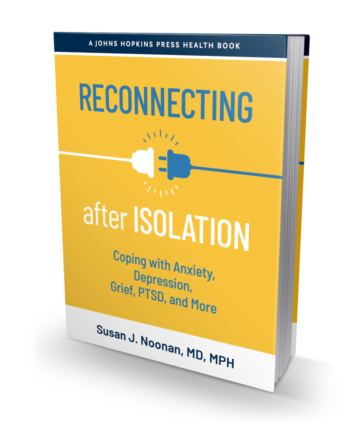A diagnosis of mental illness like anxiety or a mood disorder in one family member affects the whole family. It might bring a strain on relationships and can be wearing on the entire family in addition to the effects it has on the individual. These responses are not intentional; they usually arise because of differences in understanding what a mental illness is and how to best deal with it. But it can lead to fractures in families, serious disagreement and sometimes estrangement. This I know from personal experience.
The individual who has an illness such as depression, bipolar disorder or anxiety has his or her world changed (temporarily) and is usually looking for relief from emotional pain, as well as support and understanding. Often times this person feels mis-understood, that his family or friends just don’t “get” it or think that what bothers him is important. He may feel dismissed, that his concerns and emotions are not valid and thus may need repeated reassurance of this. He may hear messages like “pull yourself together” or “get over it.” They are not helpful in the long run as they show no understanding of the depression or anxiety as a biologic illness. Statements like these assume the individual has control over the illness, which is false. A person who has a mental illness cannot control the illness, but he does have some control on how he manages and responds to having the condition. When differences in understanding exist in families, it can be the cause of strain, resentment, arguments and more.
The family members of someone who has a mental illness often feel perplexed. They are usually trying to do their best to offer support and understanding, in so far as they are able. Often times they are doing this without a compass, without clear direction as to the most effective approach. They may not know the most effective thing to say or do. So there could be inconsistencies and variations in their ability to respond. Some family members are good at it; some not so much. A lot has to do with their understanding of the illness as an illness and how well educated they have become about it. And some family members come with a bias about mental illness that includes strong beliefs about it being a weakness or character flaw or that you are lazy and not trying hard enough. These deeply ingrained views are hard to confront, and are not helpful to hear when in the midst of an episode.
Dealing with a family member who has a mood disorder or anxiety can also take a lot of effort on a family member, even be exhausting. There’s dealing with the daily distortions in thinking and behavior, frequent medical appointments, added time and expenses devoted to the individual. It can be disruptive to the flow of the entire family’s routines and patterns, which is stressful over time. It may entail late night phone calls or conversations, continued concerns over their loved one’s health and wellbeing, and overhanging fear of a potential suicide attempt. When pressed, fatigued and frustrated, family members may snap out less effective comments as those above. That leads to further anger and resentment.
What can be done about this, before families fall apart?
The first thing is that involved family members become better educated about mental illness as a biologic illness, and to learn a few key steps in how to effectively manage it. This might be difficult to do if one family member believes in the stigma or biases related to mental illness. It’s best to go slow here, sharing information in small bites rather than all at once. Open communication and honesty are essential to building trust. Both the individual and his or her family members also need to be patient with one another. In addition, people often find it helpful to participate in family meetings as a way to learn more about the illness and how to best help. Try to do this before things fall apart, before anger and resentment color all communications.
If things do fall apart and there is personal estrangement, that does not necessarily mean it’s forever. Hurt feelings heal over time, distorted views about mental illness can be corrected with enough work and motivation. You have to decide what’s best and healthiest for you and the whole family. Yes, some relationships are toxic and must be avoided. Others can be mended, with great effort. I personally know that, when motivated, people can surprise you and change their line of thinking!
Stay well!
This article was previously posted on Psychology Today in View From the Mist.

